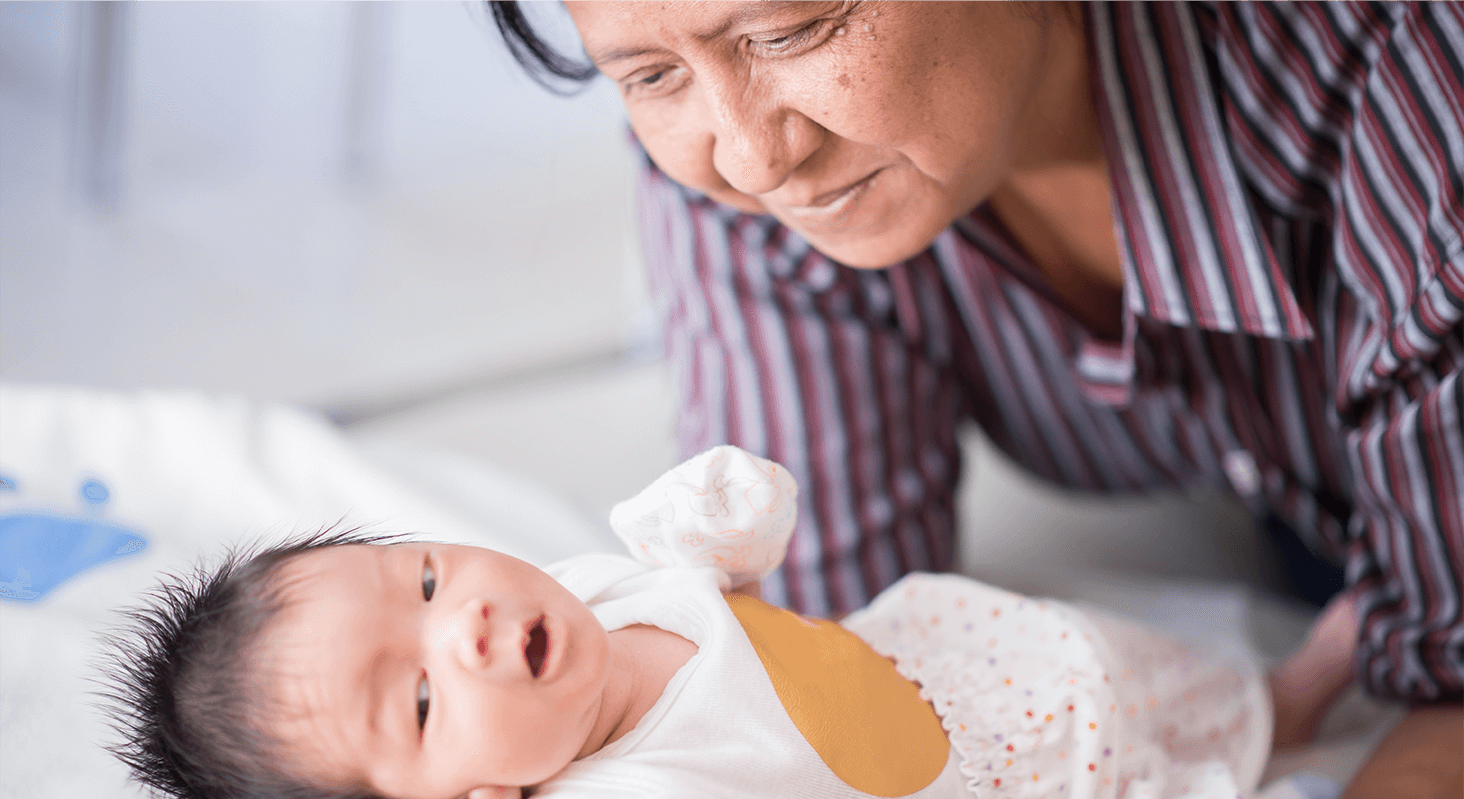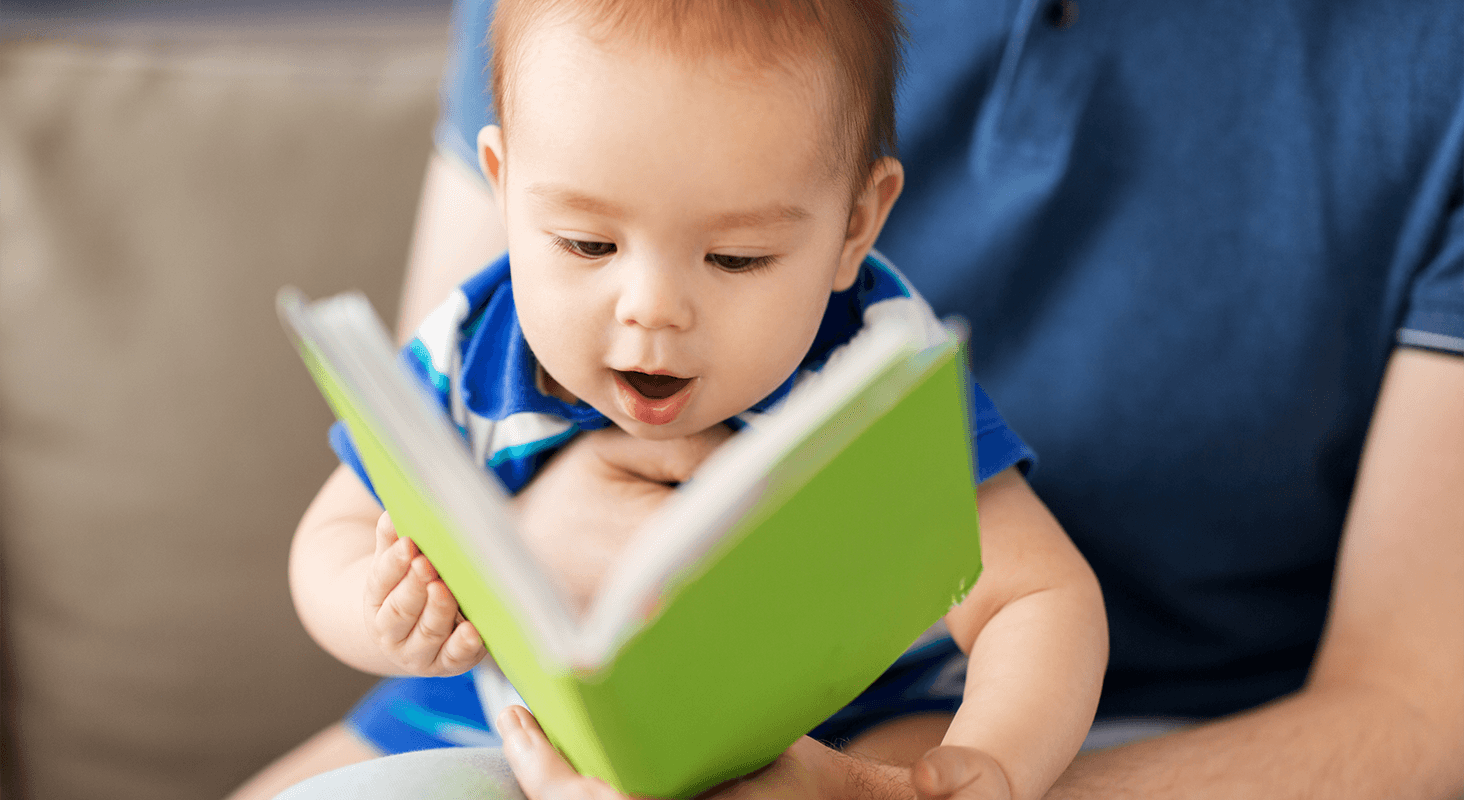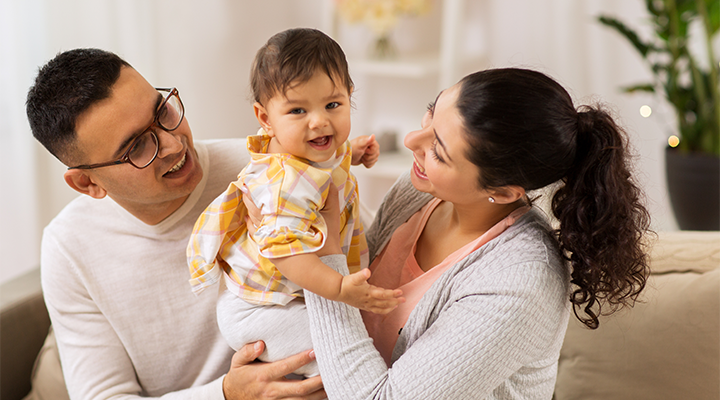Bilingualism
Bilingualism is a gift you can give to your baby. Speaking a home language is a great way to celebrate your cultural heritage and help your baby develop language skills. Here are some ways to help encourage bilingual learning in babies.

What is home language, and why is it important for my baby?
Home language is what you and your family speak at home. It's the language of comfort and love. It is the language of your extended family—your baby's grandparents, aunts, and uncles.
 TIP FOR PARENTS
TIP FOR PARENTS
Talk to Bilingualism experts at Bilingualism Matters and learn about events, programs and resources near you
Speaking with your baby in your home language will:
- Help you bond with them and share your cultural heritage and pride.
- Help maintain your family connections, customs, and culture.
- Provide benefits for your baby's brain development.
- Provide opportunities for your child to become multilingual (if you have a home language other than English).

Common Parent Questions about Bilingualism
DOES LEARNING TWO LANGUAGES CAUSE LANGUAGE DELAYS?
- No. Learning two languages will NOT confuse your baby or cause language delays. Speak to your baby in the language that you are most comfortable using!
- Babies' brains are able to manage, tell apart, and learn more than one language at the same time!
- Learning language takes time and exposure. The more you talk, sing, read, and play with your baby in your home language, the more they will learn!
SHOULD I SPEAK AND READ TO MY CHILD ONLY IN ENGLISH?
Whichever language you use, your baby will love listening to your voice because it is the voice of comfort and love. Speaking and reading with your baby in any language will help their brain grow. Talk to your baby in the language you feel most comfortable in, the language that inspires you to sing, read, and talk with them—and encourage your family members to do it, too! If you have more than one home language, use these languages with your baby. Having multiple languages is a gift you can give your child!
Many parents worry that if they don't speak English at home, their children will be behind when they get to school. But there are other ways to help your child be ready for school while giving them the opportunity to become bilingual and to be connected to the other part of their heritage. Developing a network of families and friends who speak your home languages can help provide a wider network for interaction. The more native speakers your child is exposed to, the better! The same goes for English. The more native English speakers your child interacts with—in playgroups, at the library, and in day care/preschool—the more English they will learn. Libraries are also great places to find children's books in different languages. But don't worry if you only have children's books in English. Just ignore the words on the page and make up your own stories. Talk about what's happening in the pictures, ask lots of questions connected to your child's everyday lives, and have fun cuddling together and sharing your home language.
I WANT MY CHILD TO BE BILINGUAL, BUT I ONLY SPEAK ONE LANGUAGE. WHAT IS THE BEST WAY TO DO THIS?
There are many ways to help your child learn more than one language. One of them is to seek out members of your community who are multilingual themselves and share your interest in teaching your child a second language. When your child sees your interest and enthusiasm, they will learn that speaking more than one language is perfectly normal and valuable. Exposing your child regularly to native speakers of a different language is a great way to encourage them to become bilingual. Chicago is a multicultural city. Explore and learn what different neighborhoods have to offer!
ENGLISH IS NOT MY HOME LANGUAGE. SHOULD I TURN ON ENGLISH LANGUAGE VIDEOS TO HELP MY CHILD LEARN ENGLISH?
Children learn language through social interactions: talking, playing games, and engaging in activities. Sometimes videos can be beneficial when you watch them together with your child, while asking questions, repeating numbers, letters, singing songs, etc. But remember, it's not enough for them to watch videos on their own, even if they are “educational” (see “Screen Time” section). Weekly visits to playgrounds, libraries, and playgroups with English-speaking children will help expose your child to English in a natural way (much better than videos or apps), while maintaining your home language.
IS IT A PROBLEM IF I SWITCH BETWEEN LANGUAGES?
Not at all! Your baby will learn their language(s) in the same way the language is used at home. Switching between languages is natural and often a sign of mastery in each language. To help your child become an active speaker of each language, interact in each of the language varieties in your home, including the mixed variety, by making time for each.
WHAT ARE ADDITIONAL ADVANTAGES OF BILINGUALISM?
More than half of the population of the world is bilingual. Bilingualism is always an advantage, whether to expand education and career opportunities or to feed our minds and hearts. Languages are paths to making new connections and maintaining family, community, and heritage connections. As a future bilingual speaker, your child's opportunities to live, work, and thrive in multiple settings will be multiplied.
Additional Reading
Cultural Heritage & Identity
Your baby's social environment is just as important as their physical environment.
The Sound of Your Voice
It's never too early to start talking, singing, reading, and playing with your child.
